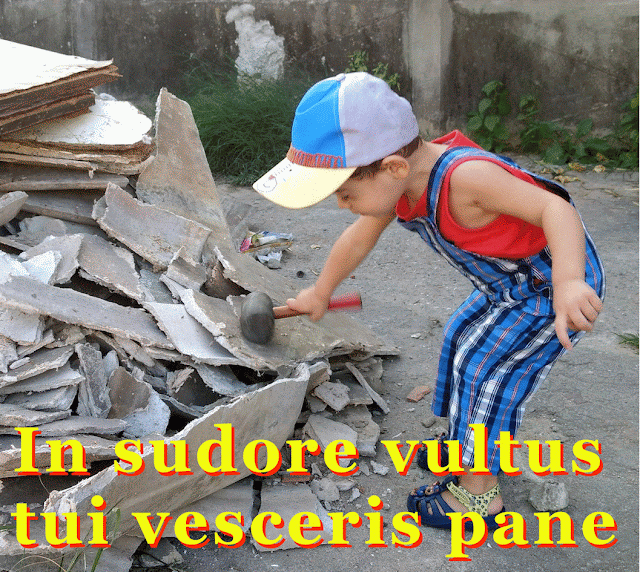Domi manere tutum
Staing at home is safe
Post 198_E
English Edition
It is now very dangerous to walk the streets of Rio de Janeiro. Mom always goes in the back seat of the car next to me, so she can quickly get me out of the car in the event of an accident or robbery.
Daddy avoids leaving home at night , because the risks are even greater... Staying at home is safe - domi manere tutum. Our little house is our refuge, that cozy place where we feel protected.
However, we can not allow our refuge to become a prison or monastery isolating us from the world. At weekends Daddy takes me for a walk in the safety of a park or a mall where I meet my little friends from nursery. I'm growing up and I have to interact with others... 👶
 |
| Our little house gives us a sense of security and warmth. |
A house is a delimited space, intended for habitation. It's what children draw, that's what billboards advertise - house is an object.
A home is much more than a house. A home is a humanized house, particularized, full of meaning and history.
Dad remembers that as a child his family moved constantly from house to house, but home remained practically the same.
In an earlier post we saw the term domus used as house. But Latin is a language that has declensions (words vary according to their syntactic function). Domi is the locative form (place where action occurs): domi means at home.
 |
| Domus declension forms |
Did you enjoy the Post? Share it on Facebook!


























